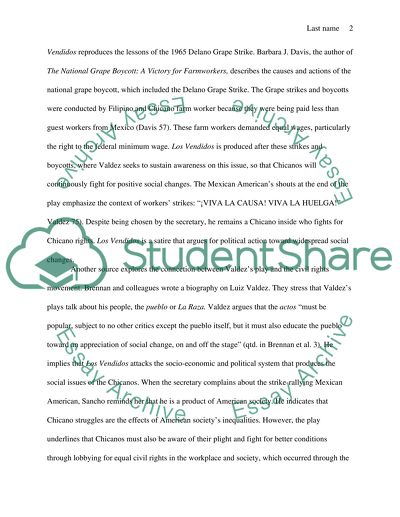Cite this document
(“Satire and Irony in Valdezs Los Vendidos: Fighting for the Civil Research Paper”, n.d.)
Retrieved from https://studentshare.org/literature/1482222-satire-and-irony-in-valdezs-los-vendidos-fighting-for-the-civil-rights-of-mexican-americans
Retrieved from https://studentshare.org/literature/1482222-satire-and-irony-in-valdezs-los-vendidos-fighting-for-the-civil-rights-of-mexican-americans
(Satire and Irony in Valdezs Los Vendidos: Fighting for the Civil Research Paper)
https://studentshare.org/literature/1482222-satire-and-irony-in-valdezs-los-vendidos-fighting-for-the-civil-rights-of-mexican-americans.
https://studentshare.org/literature/1482222-satire-and-irony-in-valdezs-los-vendidos-fighting-for-the-civil-rights-of-mexican-americans.
“Satire and Irony in Valdezs Los Vendidos: Fighting for the Civil Research Paper”, n.d. https://studentshare.org/literature/1482222-satire-and-irony-in-valdezs-los-vendidos-fighting-for-the-civil-rights-of-mexican-americans.


